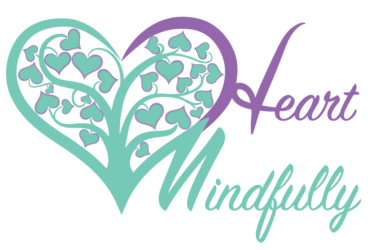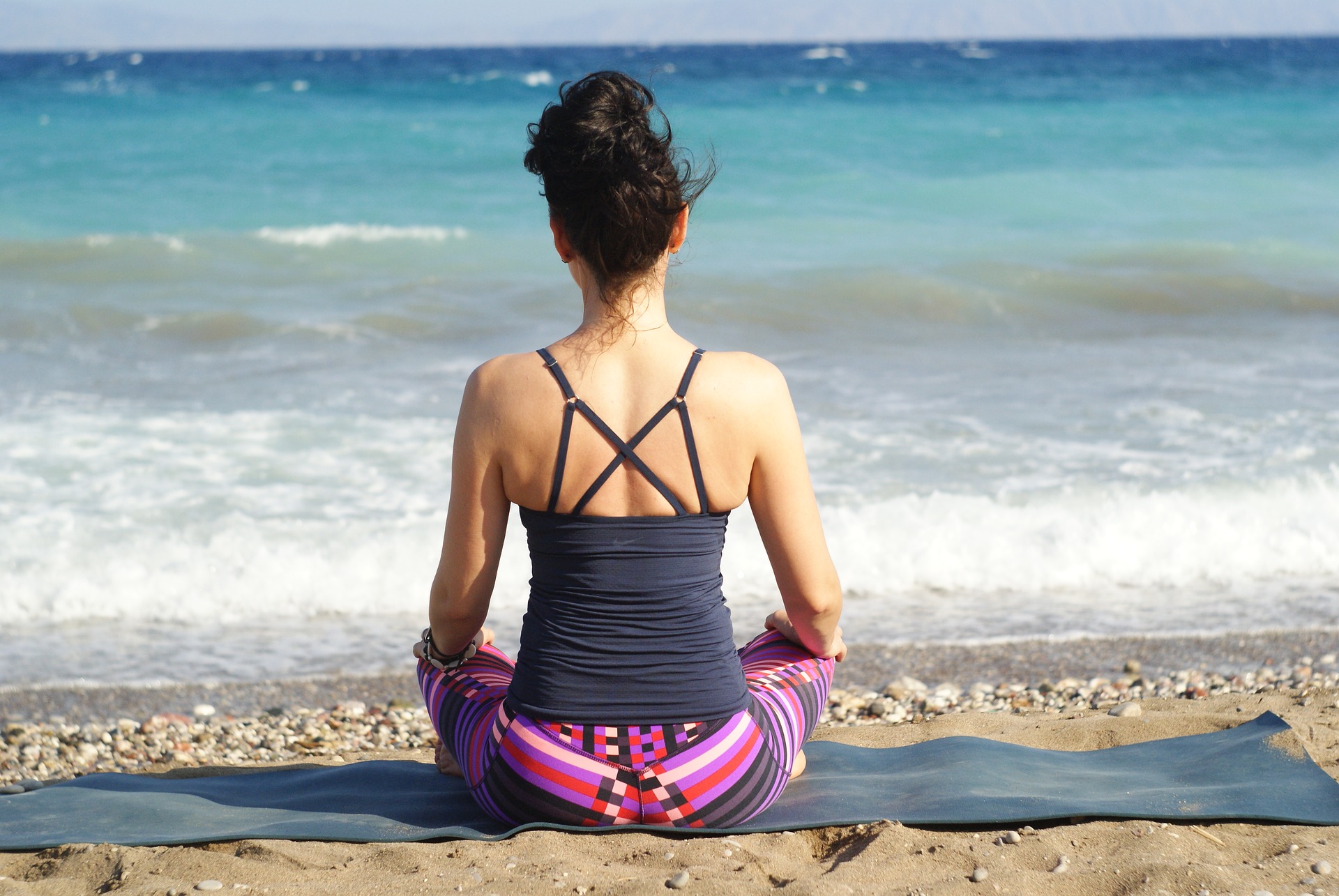How to Meditate to Relieve Stress and Anxiety
I’m pretty sure by now you would have heard about meditation. What is your first image of someone meditating? I’m going to guess maybe a chanting buddhist monk sitting cross-legged perhaps? Or maybe that’s just my image lol! You may or may not realise how powerful meditation can be in being able to relieve stress and anxiety though. Learning how to meditate to relieve stress and anxiety can be a valuable tool for increasing your well being.
In my line of work, I hear many different responses to the idea of meditating when proposed as a strategy to help relieve stress.
Now there’s no right or wrong way to meditate, it’s simply be in the moment, without fighting anything including thoughts and just be present. That’s the very basis of meditating. Below I will outline some ideas around how to meditate to relieve stress and anxiety to help you manage these not-so-good feelings when they show up.
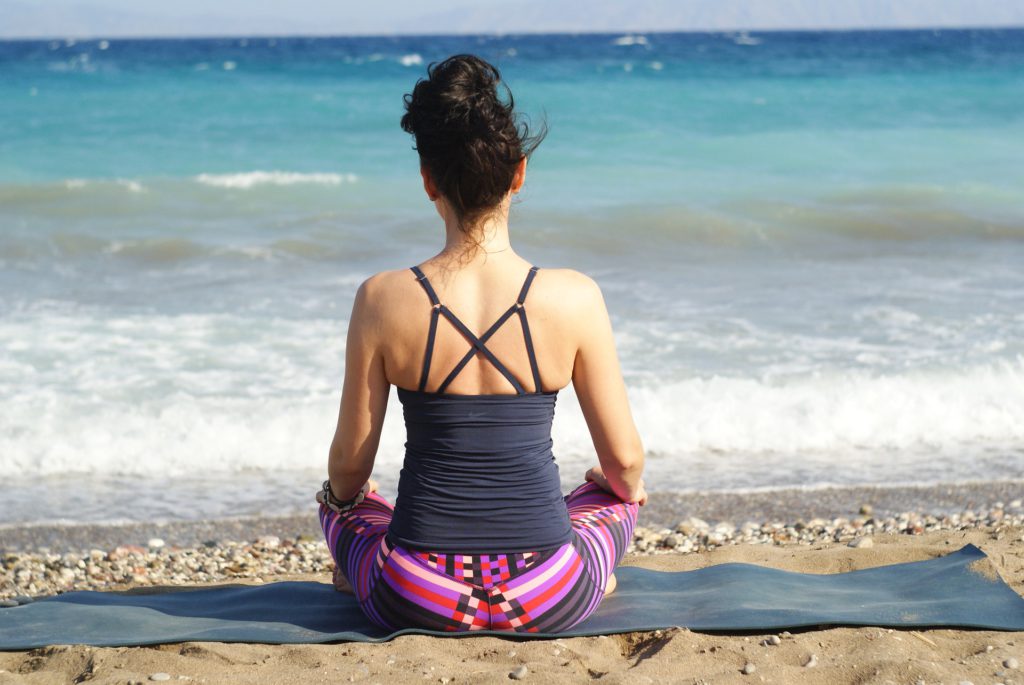
What is stress and anxiety?
Stress is our body’s internal response to what it perceives as a potential threat. Before industrialisation, this mechanism was essential for our survival as it put our body’s at a heightened awareness for us to decide whether to fight or flight aka run for safety if that’s what we perceived as the best solution to a threat. These days however, our perception of threat doesn’t usually come from the possibility of being in physical danger. It comes from a variety of sources including parenting, work demands, after school activities, managing a household, illnesses and so much more that can contribute to stress. Even from these kinds of stressors, our body activates it’s physiological responses that prepares us for fight or flight. In these cases however if the stressor doesn’t
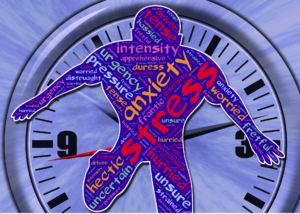
go away or our perception of it doesn’t shift, we can experience increased impact on our daily function. Sleep, health, mental health and well being can all be affected by our physiological response to stress.
Which makes it even more important to get on top of how we respond to perceived stress.
When under stress cortisol is released. This leads to the production of cytokines which then contributes to inflammation. When cytokines are present, our sleep is disrupted, depression and anxiety increases, feelings of fatigue and blood pressure also rises.
Benefits of Meditation to Relieve Stress and Anxiety
- Did you know that meditation can change your neural pathways which can help you manage stress and anxiety as you move forward with your daily meditations?
- Practicing meditation can also reduce the stress hormones cortisol and adrenaline. When our bodies have high levels of cortisol over a prolonged basis, it can impact our physical health as well as our mental health. It’s estimated that over 80% of visits to the doctor is stress related.
- Clearer mind – with practice of meditation on a daily or regular basis, you develop the skill to become more mindful of how you respond in situations so you are less stressed and more able to respond without the physical symptoms of stress. This also allows your brain to work from a more relaxed stated which allows for increased creativity.
- Meditation also contributes to enhanced self awareness.
- Meditation practiced daily can also help you sleep better, deeper and longer as your mind and body are more relaxed.
- Strengthened immune system – when we are in a relaxed state rather than heightened stressed stated, our immune system can manage better so we get sick less frequently.
- Can also decrease age-related memory loss and thus improved memory as we age.
- Has also been shown to increase kindness and compassion towards others.
- Meditation has also shown to fight addiction.
Timing
Find a time that works for you. Some people find first thing in the morning works for them, while others find it helps to find some quiet time during the day or just before going to sleep.
When creating a new habit, it can take a few weeks for you to remember to do things consistently. So in the beginning I would recommend you set a reminder on your device on a daily basis to make sure you get round to doing your meditation as a way of developing your stress and anxiety coping strategy.
Value of Breathing

Just breathe! Is it really that simple?
Not for some actually. But stay with me here. Even if you are experiencing anxiety and think your breathing is slow, do yourself a favor:
- Breathe in for 5 seconds, hold it for 2 seconds then let the air out for as long as you need to.
Do this at least 3 times before allowing your breath to return to its regular pace. Notice what happened for you. Was your breathing actually slow or did this exercise slow your breathing down a bit more? Often when we experience anxiety and stress, our breathing increases and we simply aren’t aware of doing that. It also means our brain get less precious oxygen which also affects our logical brain for thinking.
Breathing in meditation is an important step in slowing down your brainwaves and allows your body to relax.
Relax the Muscles
When you’re awake at night having trouble going to sleep, have you ever noticed what your muscles are like? If you haven’t noticed before try to remember to check them if you’re struggling to go to sleep. From personal experience, every time I can’t get back to sleep during the night, I check my muscles especially around my neck and shoulders and guess what? They’re tense as anything!!!
So to help with this issue, you can either listen to a guided meditation on youtube that guides you through your muscles and help you focus on releasing all of your muscles from head to toe. Or you can do your own body scan, noticing where you feel any tension and consciously release those muscles. This will also help you relax enough to get to sleep if that’s what the issue is for you.
Clear the Mind
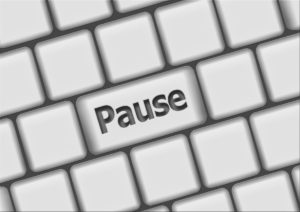
This can be a tricky one. Especially when one is experiencing stress and anxiety. The trick here is to learn how to sit with the thoughts that are there instead of resist them. Have you ever found that an unpleasant thought keeps going round and round and round in your mind? I know I have on occasion. When you notice this happening, what do you usually do with this thought? I’ve found that people tend to resist it. What I mean by this, is they try to tell it to go away, or try to change what happened, so it keeps being stuck in their. When we try to change it, push it away, fight it being there, our thoughts stays there. Do you know why? It’s because we are focussing on it, which makes it stay there. When you don’t focus and resist it you can accept it being there. Then the fight to get rid of the thought dies down. Acceptance is the key.
Did you know that thoughts also, dare I say it…aren’t real. You can’t find them in the brain when one has an autopsy. They simply aren’t a physical thing. They come and go. That also means you won’t be stuck with these thoughts unless you choose to keep focussing on them. Yes it is a choice what you focus on. Especially if you choose to remind yourself of the thought. This might be confronting to some, that’s okay. It’s something to think about and consider as a possibility if you are looking at how to shift those ongoing thoughts.
So when you’re practicing meditation and you have ongoing thoughts, simply acknowledge the thought being there rather than resist it. Acknowledge it and thank it for it’s message. Don’t get caught up in any arguments with the thought, simply notice it there. Then focus on your breathing as a way to bring yourself back to the present moment and what you’re doing.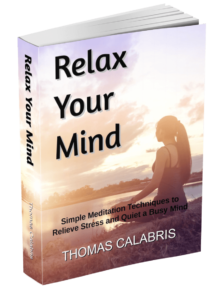
Be Present
One of the things to be mindful of when practicing meditation to relieve stress and anxiety is to be present. This means focus on this actual moment in time. What you’re currently doing in the moment. This is also how to bring yourself back from the stress and anxiety which is focussed on future worries and instead focus on just this moment.
An effective way to do this is to focus on your breathing. You can’t take a breath from the past, you can’t take a breath from the future, you can only breathe in the present. Bringing your focus to your breathing is a way to anchor yourself in the present. For more strategies of breathing and being present have a read of this post.
Two Main Styles of Meditation
Focussed attention meditation – focuses on single attention to a single object, sound, visualisation, breath, or thought. The goal is to reduce the thoughts in the mind through saying a word over and over, or focussing on your breathing, or listening to a calming sound.
Open-monitoring meditation – this involves focussing on a broader awareness of your environment, sensations, self awareness and even noticing your thoughts and feelings instead of suppressing them.
For guided meditations and ideas for how to meditate get your copy of Relax Your Mind ebook through this link or click on the banner below.
Conclusion
So living with stress and anxiety isn’t very fun and it has a physiological response to the body which over time will lead to unwanted health problems, potential mental health issues and sleep deprivation. So learning how to meditate to relieve stress and anxiety is essential to living a more relaxed, peaceful, stress-free life where you can live in the moment and handle stressful situations in a healthy way.
Have you used meditation as a way to manage your stress and anxiety? I would love to hear your experience in the comments below.

